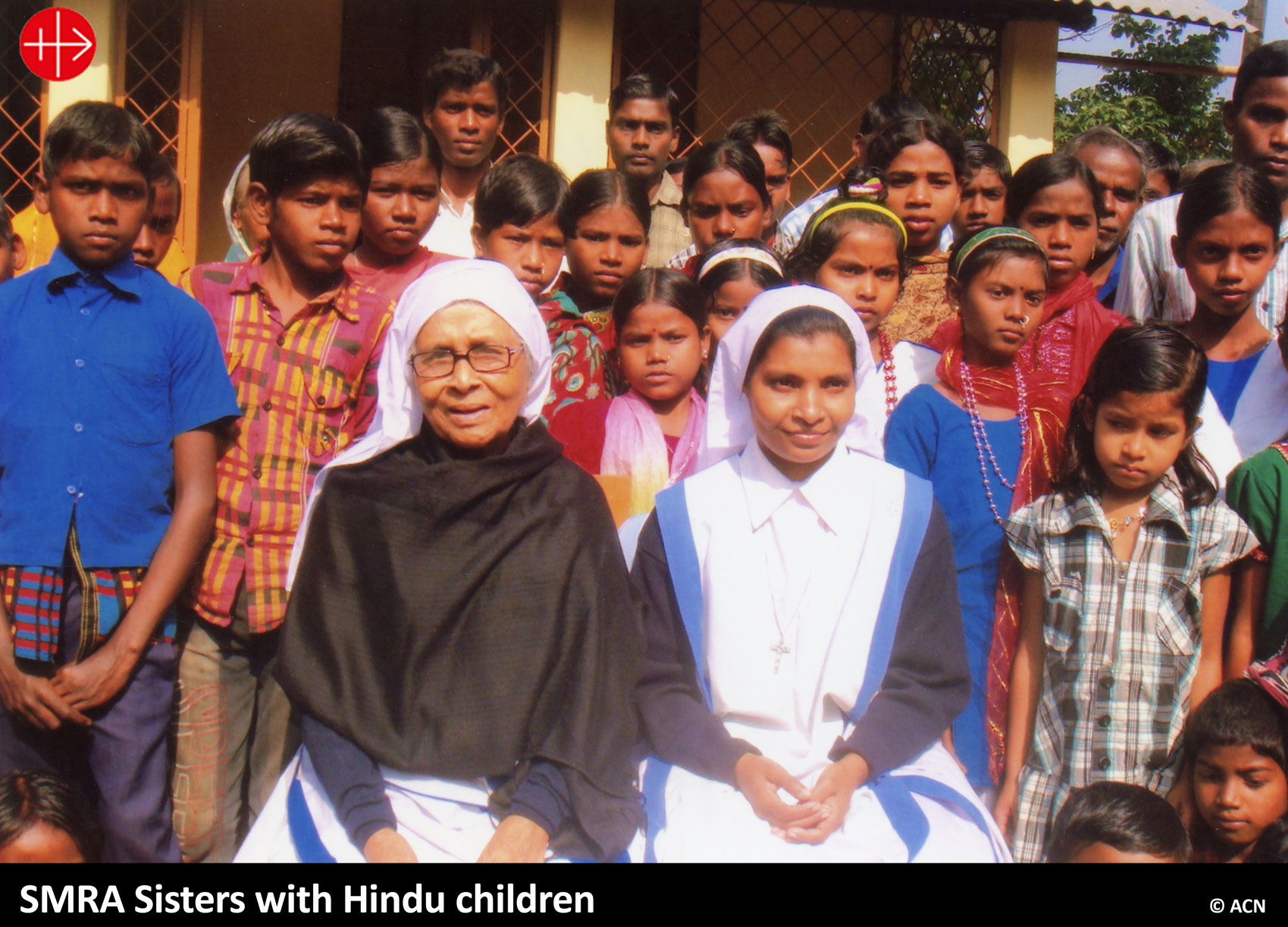BANGLADESH
Oppressed Christians look forward to Pope’s visit
Most of the Catholics in the country are tribal peoples, who are still fighting for recognition of their rights
Bangladesh is awaiting the visit of Pope Francis from 30 November to 2 December. It is one of the most densely populated countries in the world and the third most populous Muslim nation in the world, after Indonesia and Pakistan. In line with his desire to “go out to the peripheries”, Pope Francis will be visiting the small Catholic community in the country, which represents less than one percent of the population. The motto of the papal visit is “harmony and peace” – a vitally important subject in a country where life is by no means easy for the Christian minority.
Most of the Catholics in Bangladesh are members of the indigenous tribal peoples. And although “according to the law and constitution they have the same rights as all the other citizens of the country”, in reality, they face daily discrimination and do not have the same educational or job opportunities, says Bishop Bejoy Nicephorus D’Cruze of the diocese of Sylhet in the northeast of the country. He was speaking to the international Catholic pastoral charity and pontifical foundation Aid to the Church in Need (ACN). “Their rights are not acknowledged automatically; if they fight, they might possibly be successful, but it is very difficult to fight alone, especially against the prevailing religious sentiment and against the corruption in the courts“, he explains.
The Khasi are the main ethnic group in the diocese of Sylhet and they are practically all Christians. For centuries this tribal person has inhabited the hill country in the region around Sylhet, dwelling in over a hundred villages. They are keen to protect the forest and the natural environment, and they live from the traditional cultivation of betel leaves. Their practice is to occupy an area of land for 30 to 40 years or so, until the land is exhausted, and then move on to another area. Although this is their ancestral land, they have no constitutional recognition of their rights. Father Joseph Gomes, OMI ministers to the Khasi Catholic community and he confirms that the native peoples of these mountain regions suffer discrimination and exclusion from social services and are often caught up in a struggle to protect their traditional lands. Bishop D’Cruze explains the reasons behind this conflict: “All these mountains are under the forest department and frequently adjacent to the tea plantations, and so the tea plantation management is taking out leases from the government and ignoring the existence of the Khasi people, in order to extend the existing tea plantations, thereby forcing the Khasi people to abandon their ancestral land.”
Sometimes they even use violence, as Father Joseph Gomes explains sadly: “Around three years ago the manager of a tea plantation arrived with a group of around 200 people, while the village men were away working in the forest, and began to pull down the village houses. Initially, the women resisted these attempts, and when the men returned they also opposed the attempt and fighting broke out. One person from the tea company died later in hospital. In the end, however, the people were unable to continue fighting against the tea companies and as a result, they were evicted from these lands.”
In a series of repeated conflicts with the government forest department, over 25 Khasi villages have now disappeared. Others are currently in danger. “Two of the tea plantations, Nahar and Jhimai in Moulvibazar district, are attempting to take the land of the Khasi people forcefully. The people of these two villages – about 150 families – are about to file a case against the tea plantations”, Bishop D’Cruze explains.
The diocese of Sylhet is doing its best to give spiritual and moral support to the Catholic minority in the face of this challenge and has begun various initiatives to encourage them, such as the publication of a weekly review, the “Weekly Pratibeshi” which aims to help the people grow in their faith and also be aware of their rights. Father Anthony Sen, who works as a journalist for this newsletter, insists on the need for this support. “They have all this pressure from the powerful people living around them, especially the Muslims. They think that, as they are a minority people, they can do what they like with them. They even think they can kidnap their young girls or attack the people, the women or the men, it doesn’t matter. So, they always have this kind of pressure. But, as a Church, we are beside them, to protect them; always we take care of them”.
It is an approach that sometimes involves risking their own lives, as Bishop D’Cruze can testify – since he has received death threats from fundamentalist Islamist groups in response to his clear posture in defence of human rights and religious freedom.
This is the suffering and silent Catholic minority in Bangladesh which the Holy Father is also about to visit. Bishop D’Cruze confirms that “the Holy Father knows the situation of the Church and of the Catholics in Bangladesh”. And speaking of the Khasi minority and their expectations of the papal visit, he explains, “They don’t have any high expectations of the Holy Father’s visit. They are simple people and they would be happy to come to Dhaka to see him and receive his blessing so that they can survive, gain courage and fight against all the monsters.”
The international Catholic pastoral charity and pontifical foundation ACN has been working together with the local Catholic Church in Sylhet ever since the diocese was founded. Currently, ACN is supporting various projects for spiritual formation and human development, in collaboration with the diocesan pastoral, educational and justice and peace committees. During 2016 ACN gave over 560,000 Euros in support of projects in Bangladesh.
Maria Lozano – ACN International





